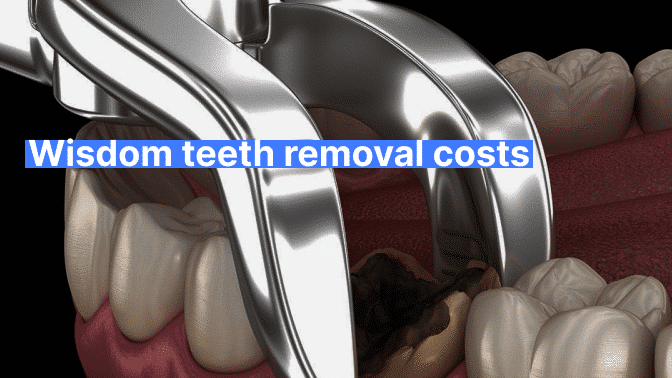We, humans, develop a complete set of 32 teeth by the time we are an adult or 18+ years old. We use them to chew on things taken orally, such as food, to aid digestion and swallowing. Moreover, we have four sets of teeth; the incisors, the front ones responsible for cutting the food; canines that tear the food; premolars, and the molars used to crush the food. The differences in the teeth' placement, density, and shapes allow them to perform different tasks.
Located in the farthest part of the teeth in the molars, wisdom teeth erupt later than the other permanent teeth, usually in our late teenage years or early 20s. Most adults grow a set of four wisdom teeth, one at each quadrant of the molars. However, some produce less than four or even more. Wisdom teeth emerge later than the others because the jawbone constantly develops and expands as the human reaches its full adult size. Thus, the root of these wisdom teeth waits before the space for the teeth has fully grown and can accommodate them. Once they start growing, removing wisdom teeth is a standard oral care procedure for many.
Why Wisdom Teeth Needs To Be Removed
As wisdom teeth emerge in a person's mouth, cases of the tooth growing in the wrong direction or being impacted are common among many people, with the American Academy of Oral and Maxillofacial Surgeons finding nine out of ten adults with these cases. An impacted wisdom tooth occurs when the third molar is prevented from erupting correctly due to a person's features, including their bone structure, placement and growth of other teeth, and the spaces in their mouth.
If left untreated, impacted wisdom teeth can cause many complications for a patient. A tooth emerging at a wrong angle can damage surrounding teeth due to its corners scraping the surface of the enamel or pushing the other teeth toward a different direction. Aside from that, it can develop a sac in the jawbone, causing a painful and swollen cyst. Partially erupted wisdom teeth are also harder to reach when cleaning, thus causing them to decay in the long run.
The only way to know whether a tooth has the potential to be impacted before it comes out is through a scan. When an impacted tooth starts erupting, red and swollen gums, jaw pain, swelling, and difficulty opening a person's mouth are the usual signs it needs to be removed.
Pre and Post Surgery Care
There is no way to prevent an impacted wisdom tooth from erupting the way it is. The only solution is to contact a dentist, get a scan, and perform oral surgery to extract the tooth. It is best to address the issue as early as possible to prevent any complications from occurring further. Aside from that, removing it as early as possible lets the teeth get accustomed to less crowding and eliminates the risk of inflammation and oral disease.
If you decide to get surgery, some of the things that you need to consider and do are:
- Prevent eating or drinking at a specified time before the surgery.
- Prepare yourself and avoid or be honest with your dentist about the over-the-counter medications you have taken before the surgery.
- Get your room ready for recovery.
- Prepare soft foods for your post-surgery care, such as smoothies, ice cream, mashed potatoes, etc.
- Find someone to accompany you, as the anesthesia and other medications used during the surgery may not allow you to drive or go home by yourself.
After the surgery, some things you need to do to ensure a healthy and complete recovery are:
- Restricting any physical activities for a while, such as heavy lifting.
- Avoiding touching the area with your tongue, finger, or anything.
- Being careful when rinsing your mouth.
- Applying ice on your cheeks after the surgery to numb swelling and pain.
- Listening to your physician's instructions about doses and the medication schedule and following them correctly.
Wisdom tooth extraction procedures have a success rate of 90%, with patients feeling relief and getting the needed oral care through this procedure. By following these steps before and after the surgery, a person can ensure that their impacted wisdom tooth removal will be successful and heal properly. In case of problems such as pain or excessive bleeding after the extraction despite prescribed medications, contact your dentist immediately.
Conclusion
Wisdom teeth, particularly when impacted during the eruption, can cause pain and complications, putting a person's oral health at risk of infection and disease. The best way to deal with such a case is to undergo an extraction by a licensed physician and dentist. With proper assessment, tooth extraction, and oral practices, further problems can be prevented, thus enabling you to have better oral health.


